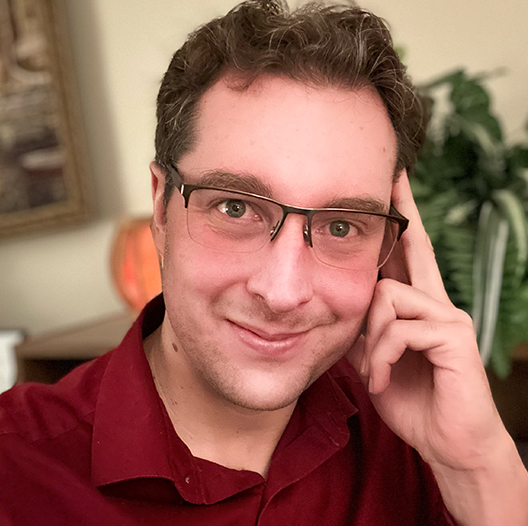As a graduate of the Antioch University New England PsyD program, I very much embrace both a broad and deep engagement with my work. In my professional life, I have fully immersed myself in the multiple roles that I was trained to fill, including supervision, assessment, psychotherapy, consultation, and administration. In each of these roles, I bring a psychoanalytically informed approach to develop an understanding of process, unconscious motivation, and outcome.
As a postdoctoral fellow, I pursued advanced training at the William Alanson White Institute of Psychiatry, Psychoanalysis, and Psychology. There, I engaged in unspecialized training through the Eating Compulsions, Addictions, and Compulsions (EDCAS) training program. Afterward, I completed a fellowship at the Psychoanalytic Institute of New England (PINE), where I am now an adjunct faculty member teaching about transference and countertransference.
Over the years, I have become increasingly interested in how students and trainees develop a professional mind and have pursued additional interests in how psychoanalytic psychology can help to understand sociopolitical issues. Last, I maintain a small private practice working with individuals (adolescence through the later life) experiencing complex trauma, chronic pain and health conditions, existential concerns, and distressing relationships with food and their bodies.
- PsyD Antioch University New England (2013)
- MS Antioch University New England (2010)
- BA Florida International University (2006)
Advanced Training
- Psychodynamic Psychotherapy Fellowship at Psychoanalytic Institute of New England (PINE; 2016–2021)
- Diagnosis and Treatment of Complex Trauma & Dissociative Disorders at the International Society for the Study of Trauma and Dissociation (Standard 2016; Intermediate 2018)
- Clinical Hypnosis at the American Society for Clinical Hypnosis (ASCH; Standard 2016, Intermediate 2017)
- Postdoctoral Internship
- William Alanson White Institute (2015)
- Predoctoral Internship
- Girard Medical Center (2013)
I strive to use best practices in teaching to support a rich and shame-free environment where students can develop curiosity about the expansive opportunities that exist in the field of psychology. I approach my teaching with authenticity and humility so as to work within an experiential place that is safe enough to take risks, make mistakes, and celebrate successes.
Students learn in a variety of ways, and I aspire to make the content I teach—some of which can be quite dense and difficult to metabolize—accessible in whatever ways that I can. In this regard, I tend to rely on experiential learning, visual and multimedia aids, and classroom discourse to support a wide range of learning styles.
Last, I hope to cultivate curiosity in how psychology can permeate any area of personal interest. I, myself, feel intellectually excited when I see students and trainees building on their passions and exploring content that they may have not otherwise considered relevant or interesting. In this regard, I revel in the experience of students and trainees joining me in my own life-long interest in learning.
Adjunct Faculty at Psychoanalytic Institute of New England (PINE)
- Adjunct Faculty at PINE Psychoanalytic Society of New England (PPSNE)
- Cognitive and Affective Bases of Behavior
- Consultation I and II
- Tests and Measurement and Objective Personality
- Cognitive Assessment
- Projective Assessment
- Social Psychology and Responsibility
- Professional Seminar I–IV

